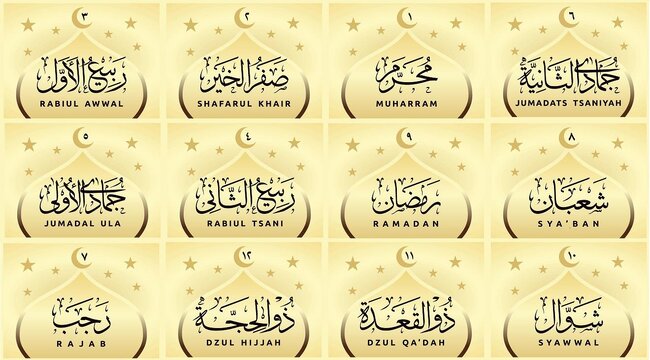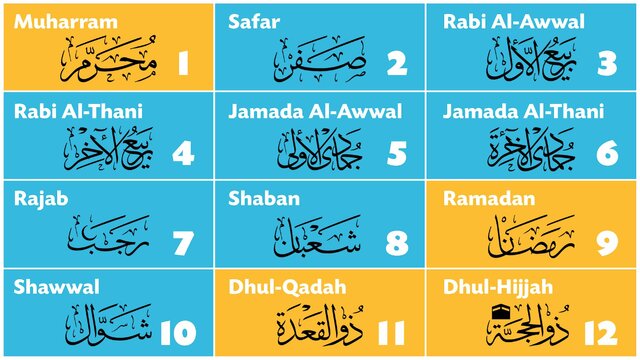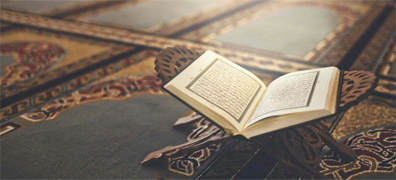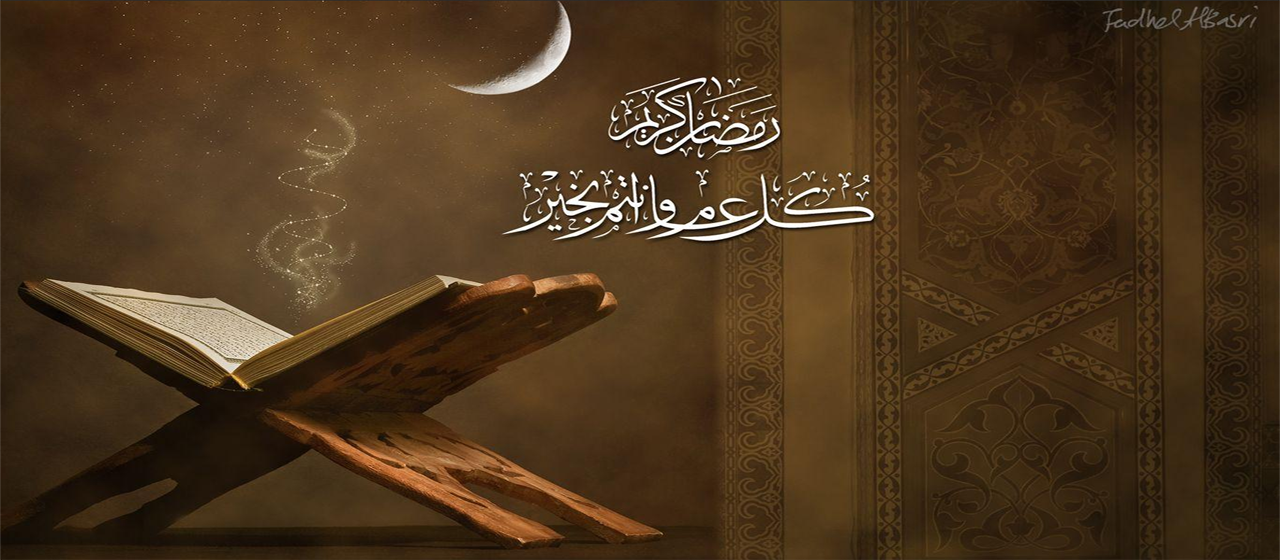- Regist
- 11-03-2024
- Poruka
- 3,444
- Reakcije
- 81
- Bodovi
- 216

The Islamic calendar consists of 12 months and is based on the position and phases of the moon. Most Islamic months begin with the sighting of the new moon and is approximately 29 to 30 days long. The lunar calendar changes over time, and every year, the placement of each month is different from that of the previous year. An Islamic year does not conform to seasons and is about 10 days shorter than the solar year.
Notably, each month in the Islamic calendar is significant in its own way and symbolises a particular meaning. Almost every month features an obligatory event or a festivity that grants Muslims the opportunity to earn extra blessings. Here is a detailed narration of each Islamic month and the significance it holds for Muslims.
Islamic Calendar vs Gregorian Calendar
1. Calculation Basis: The Islamic calendar works according to the sighitng of the new moon, while the Gregorian calendar is based on the revolutions of the earth around the sun.
2. Year Enumeration: The Islamic calendar starts from the migration of Prophet Muhammad (PBUH) from Makkah to Madinah in 622 CE, while, the Gregorian began from the birth of Jesus Christ.
3. Year Duration: The Islamic calendar is around 354 or 355 days long depending upon the sighting of the moon, while Gregorian Calendar is 365 or 366 days long as per the revolution of the earth.
Islamic Months: Names and Significance
1. Muharram – The month of martyrdom
Muslims begin their Arabic new year with the month of Muharram. The literal meaning of the name of this month is forbidden. It is so because, during this time, all the battles and fights are prohibited in Islam. Although observing a fast is not obligatory during this month, the Prophet Muhammad (PBUH) once mentioned that Muharram is the second-best time to keep fast after Ramadan.
Notable Days: In this month, Muslims observe the martyrdom of Hazarat Umar Farooq on the first day of Muharram. The 10th day of this month is also significant as Hazarat Imam Hussain and his companions were martyred on this day in Karbala.
Suggested Read: The Month Of Muharram – History, Importance, Prohibitions And Facts
2. Safar – The second month of the Islamic calendar
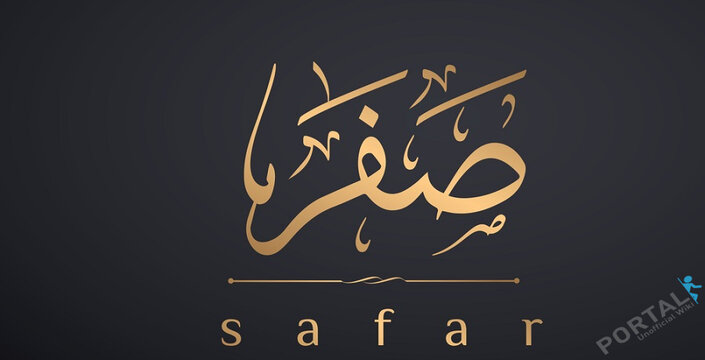
The second month of the lunar calendar is Safar that translates to ‘void’. The month is supposedly named so because, during this time, the pre-Islamic Arabs used to leave their houses empty as they searched for food. There is yet another account, which states that Arabs in Safar looted the homes of their enemies after conquering them in battles and left nothing behind.
Notable Days: On the 20th day of Safar, Chehlum of Hazrat Ibn Ali is observed by Shia Muslims, while the 27th day of this month is supposedly noteworthy because Hazarat Muhammad Mustafa migrated from Makkah to Madinah during this time.
Suggested Read: The Month Of Safar – Its Importance And Common Misconceptions
3. Rabi ul-Awwal – The sacred month of Hijrah
The third month in the Islamic calendar holds a special significance for Muslims around the world as it was the time Allah chose to bless us with the birth of the Prophet Muhammad (PBUH). It is also the month when the Prophet performed Hijrah and left us. The literal meaning of Rabi ul-Awwal is the ‘first spring.’ But since the Islamic calendar keeps changing every year, it is clear that the reference here is not to the actual spring but to the happiness the season is associated with.
Notable Days: The 12th day of Rabi ul-Awwal is considered sacred among Sunni Muslims as they believe it was on this day the Prophet was born. However, Shia Muslims maintain that his birthday is the 17th day of Rabi ul-Awwal.
Suggested Read: Rabi ul-Awwal – The Third Month Of The Islamic Calendar
4. Rabi ul-Akhir – Rabi al-Thani, the 4th of Arabic months
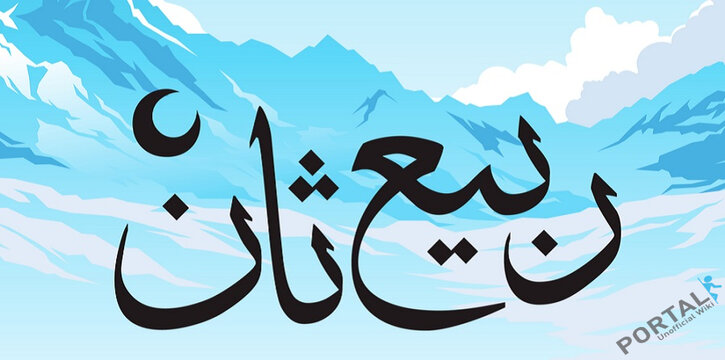
The Arabic name Rabi ul-Akhir means the last spring. During this month, reciting the holy Quran and Nawafil prayers is considered good, but there is no mention that performing these acts of worship earns special rewards. Also, it is recommended to make donations and charity in this month to serve and please the deceased of the family.
Notable Days: The sufi sheikh, Abdul Qadir Gilani, who is widely believed to be a great saint, died on the 11th of this month.
5. Jumada al-Awwal – The month of the Moota battle
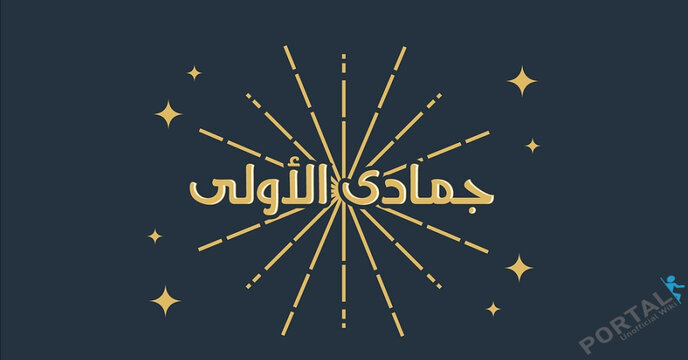
The fifth Islamic month, Jumada al-Awwal, translates to the first month of the parched land, referring to the pre-Islamic summer. According to another account, during this month, the water would freeze over, and this is why the meaning here is related to the verb ‘to freeze’. The month is also known as Jumada al-Ula which means to entrust or care during the cold and dry month. This is also the month when Muhammad SAW was married to Hazrat Khadija.
Notable Days: Jamadi ul-Awwal Hazarat Ali was born on the 15th day of this month. Jumada al-Ula is also important in Islam because the Battle of Muta, where Khalid ibn Walid was announced as one of the Sword of Allah, also took place during this month.
6. Jumada al-Thani – The sixth of the Islamic months
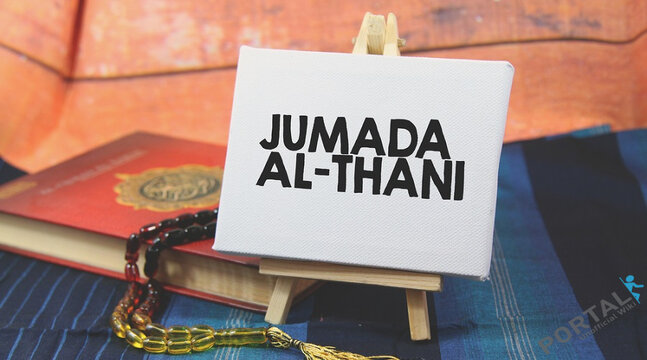
According to the lunar calendar, this is the sixth month of the year. It refers to the land devoid of rain and denotes the second month of the parched land. Some people in Islam believe that the month refers to the verb ‘to freeze’ as during this time the water would turn into ice. Also known as Jumada al-Akhirah, Jumada al-Thani spans 29.5 days.
Notable Days: Also referred to as the mother of the sons, Fatimah Bint Huzam al-Kulabiyah died on the 20th day of this month. Moreover, the youngest daughter of the Prophet Muhammad (PBUH) and Khadijah also died during Jumada al-Thani, on the 3rd day of the month.
7. Rajab – The month of absolution
Considered as a sacred month, Rajab is the time when fighting and battles are prohibited. Shia Muslims believe that this month holds several virtues and belongs to Ali. Derived from the verb ‘Rajaba,’ the month is considered respectable and glorified. The followers of Islam maintain that during this month, one’s acts greatly affect the balancing scales and he/she must spend his/her time in prayers. The Prophet Muhammad (PBUH) attributed greatness to the month by describing it as the time for absolution and said that anyone who fasts during Rajab will be rewarded by angel Ridwan.
Notable Days: The 27th day of Rajab is considered a holy day in Islam, as it was on this day when the Prophet Muhammad (PBUH) ascended to the heavens.
Suggested Read: The Month Of Rajab – Importance, Virtues And Rewards
8. Shaaban – The month of Shab-e-Barat
Arabs used to go in search of water during this time of the year because of which the month was called Shaaban, which means to scatter. Some people also recognise it as the month of the holy Prophet Muhammad (PBUH). During Shaaban, observing fast on Thursdays is recommended as it is said that Allah grants 20 worldly desires and 20 wishes of the hereafter to the person who does so.
Notable Days: On the 11th day of Shaaban, Muslims celebrate the birth of Ali Akbar Ibn Hussain, while the 15th day is Shab-e-Barat or the birthday of Muhammad al-Mahdi. Muslims also call it the night of forgiveness or Laila Tul Baarat.
9. Ramadan – The most virtuous of the Islamic months
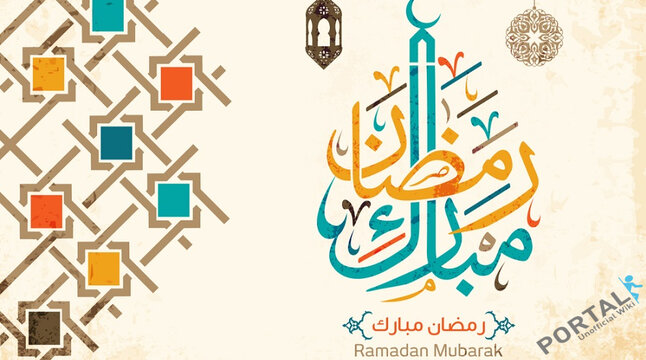
The month of Ramadan is when Allah revealed the holy book of Quran to mankind. The month is a golden opportunity for Muslims to strengthen their faith, redeem their sins, and purify their mind, body, and soul. During this time, people are recommended to take a break from the mundane acts of life and recite prayers and perform holy deeds. During Ramadan, Muslim devotees observe fast from pre-dawn till sunset and carry out acts of charity.
Notable Days: During Ramadan, the last 10 days of the month are considered especially significant as the night of Laylat al-Qadr is observed on one of these days.
Suggested Read: Umrah In Ramadan – Significance And Benefits
10. Shawwal – Calls for celebrations of Eid
The month of Shawwal is believed to be named after the time when the female camels would be pregnant with calves. In this month, Muslims celebrate Eid-ul Fitr, which marks the end of Ramadan. Some people observe fast during this time of the month as they consider it to be an act of Sunnah. In Shawwal, all transgressions are pardoned as a reward for observing fasts during Ramadan.
Notable Days: The first day of Shawwal observes the celebration of Eid-ul Fitr. Also, it was during this month, three years after Hijrah, when the battle Uhud took place.
Suggested Read: The Month Of Shawwal – Significance, Traditions And Facts
11. Dhul Qadah – The birth month of Prophet Ibrahim
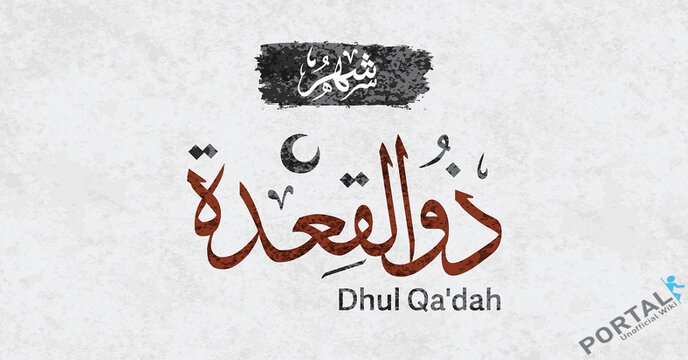
The eleventh of the Arabic months is one of the four sacred months in which battles were not allowed. Its name means one of the sitting or truce, and at this time, people prepare themselves for the pilgrimage of Hajj. During Dhul Qadah, good deeds offer many rewards, whereas sins committed are more burdensome and heavier to bear.
Notable Days: On the 25th day of Dhul Qadah, Prophet Ibrahim was born. It was also the day when the Earth beneath the Kaaba was laid.
12. Dhul Hijjah – The sacred month of Hajj
The last month of the Islamic calendar is dedicated to the pilgrimage of Hajj. Considered as one of the five pillars of Islam, the pilgrimage to the holy Kaaba is sacred and performed by millions of Muslims every year. The first 10 days of Dhul Hijjah are considered the most virtuous. Fasting during Dhul Hijjah is believed to be equivalent to fasting throughout the year. Spending time in a masjid and offering Dua during these days are two rewarding acts that one must perform during this month to please Allah.
Notable Days: The 9th day of Dhul Hijjah is the day of Arafah, and observing a fast on this day purifies the sins of this life. Also, Muslims celebrate the 10th day of the month as the festival of sacrifice or the night of Eid.
Facts about Islamic Calendar
1. The real date of the origination of Islamic Calendar according to the Gregorian Calendar is 622 AD. The current year according to Islamic Calendar is 1443 AH. The year of 622 AD is used as the first year as Prophet Muhammad (PBUH) migrated to Madinah from Makkah.
2. The Calendar was first used in 638 AD by the Muslims worldwide. Abu Musa Ashaari told the officials in the Umar caliphate that the events lacked accounts of real dates. Hence, the days were counted from Hijri date in the world of Islam.
3. The days in the Islamic Calendar are lesser than that of the Gregorian Calendar. Though the Islamic Calendar is new in terms of year count it will eventually equal that of Gregorian Calendar. In the year of 20,874 AD, the Islamic calendar count will also be 20,874 AH.
So, each month in the Islamic calendar is significant in some way and related to the history of Islam and the faiths of the Muslim people in one way or other. Also, there are four sacred months in the Islamic calendar, namely Rajab, Muharram, Dhul Hijjah, and Dhul Qadah. Scholars suggest that performing good deeds and acts of worship during these months is essential.
Notably, each month in the Islamic calendar is significant in its own way and symbolises a particular meaning. Almost every month features an obligatory event or a festivity that grants Muslims the opportunity to earn extra blessings. Here is a detailed narration of each Islamic month and the significance it holds for Muslims.
Islamic Calendar vs Gregorian Calendar
1. Calculation Basis: The Islamic calendar works according to the sighitng of the new moon, while the Gregorian calendar is based on the revolutions of the earth around the sun.
2. Year Enumeration: The Islamic calendar starts from the migration of Prophet Muhammad (PBUH) from Makkah to Madinah in 622 CE, while, the Gregorian began from the birth of Jesus Christ.
3. Year Duration: The Islamic calendar is around 354 or 355 days long depending upon the sighting of the moon, while Gregorian Calendar is 365 or 366 days long as per the revolution of the earth.
Islamic Months: Names and Significance
1. Muharram – The month of martyrdom
Muslims begin their Arabic new year with the month of Muharram. The literal meaning of the name of this month is forbidden. It is so because, during this time, all the battles and fights are prohibited in Islam. Although observing a fast is not obligatory during this month, the Prophet Muhammad (PBUH) once mentioned that Muharram is the second-best time to keep fast after Ramadan.
Notable Days: In this month, Muslims observe the martyrdom of Hazarat Umar Farooq on the first day of Muharram. The 10th day of this month is also significant as Hazarat Imam Hussain and his companions were martyred on this day in Karbala.
Suggested Read: The Month Of Muharram – History, Importance, Prohibitions And Facts
2. Safar – The second month of the Islamic calendar

The second month of the lunar calendar is Safar that translates to ‘void’. The month is supposedly named so because, during this time, the pre-Islamic Arabs used to leave their houses empty as they searched for food. There is yet another account, which states that Arabs in Safar looted the homes of their enemies after conquering them in battles and left nothing behind.
Notable Days: On the 20th day of Safar, Chehlum of Hazrat Ibn Ali is observed by Shia Muslims, while the 27th day of this month is supposedly noteworthy because Hazarat Muhammad Mustafa migrated from Makkah to Madinah during this time.
Suggested Read: The Month Of Safar – Its Importance And Common Misconceptions
3. Rabi ul-Awwal – The sacred month of Hijrah
The third month in the Islamic calendar holds a special significance for Muslims around the world as it was the time Allah chose to bless us with the birth of the Prophet Muhammad (PBUH). It is also the month when the Prophet performed Hijrah and left us. The literal meaning of Rabi ul-Awwal is the ‘first spring.’ But since the Islamic calendar keeps changing every year, it is clear that the reference here is not to the actual spring but to the happiness the season is associated with.
Notable Days: The 12th day of Rabi ul-Awwal is considered sacred among Sunni Muslims as they believe it was on this day the Prophet was born. However, Shia Muslims maintain that his birthday is the 17th day of Rabi ul-Awwal.
Suggested Read: Rabi ul-Awwal – The Third Month Of The Islamic Calendar
4. Rabi ul-Akhir – Rabi al-Thani, the 4th of Arabic months

The Arabic name Rabi ul-Akhir means the last spring. During this month, reciting the holy Quran and Nawafil prayers is considered good, but there is no mention that performing these acts of worship earns special rewards. Also, it is recommended to make donations and charity in this month to serve and please the deceased of the family.
Notable Days: The sufi sheikh, Abdul Qadir Gilani, who is widely believed to be a great saint, died on the 11th of this month.
5. Jumada al-Awwal – The month of the Moota battle

The fifth Islamic month, Jumada al-Awwal, translates to the first month of the parched land, referring to the pre-Islamic summer. According to another account, during this month, the water would freeze over, and this is why the meaning here is related to the verb ‘to freeze’. The month is also known as Jumada al-Ula which means to entrust or care during the cold and dry month. This is also the month when Muhammad SAW was married to Hazrat Khadija.
Notable Days: Jamadi ul-Awwal Hazarat Ali was born on the 15th day of this month. Jumada al-Ula is also important in Islam because the Battle of Muta, where Khalid ibn Walid was announced as one of the Sword of Allah, also took place during this month.
6. Jumada al-Thani – The sixth of the Islamic months

According to the lunar calendar, this is the sixth month of the year. It refers to the land devoid of rain and denotes the second month of the parched land. Some people in Islam believe that the month refers to the verb ‘to freeze’ as during this time the water would turn into ice. Also known as Jumada al-Akhirah, Jumada al-Thani spans 29.5 days.
Notable Days: Also referred to as the mother of the sons, Fatimah Bint Huzam al-Kulabiyah died on the 20th day of this month. Moreover, the youngest daughter of the Prophet Muhammad (PBUH) and Khadijah also died during Jumada al-Thani, on the 3rd day of the month.
7. Rajab – The month of absolution
Considered as a sacred month, Rajab is the time when fighting and battles are prohibited. Shia Muslims believe that this month holds several virtues and belongs to Ali. Derived from the verb ‘Rajaba,’ the month is considered respectable and glorified. The followers of Islam maintain that during this month, one’s acts greatly affect the balancing scales and he/she must spend his/her time in prayers. The Prophet Muhammad (PBUH) attributed greatness to the month by describing it as the time for absolution and said that anyone who fasts during Rajab will be rewarded by angel Ridwan.
Notable Days: The 27th day of Rajab is considered a holy day in Islam, as it was on this day when the Prophet Muhammad (PBUH) ascended to the heavens.
Suggested Read: The Month Of Rajab – Importance, Virtues And Rewards
8. Shaaban – The month of Shab-e-Barat
Arabs used to go in search of water during this time of the year because of which the month was called Shaaban, which means to scatter. Some people also recognise it as the month of the holy Prophet Muhammad (PBUH). During Shaaban, observing fast on Thursdays is recommended as it is said that Allah grants 20 worldly desires and 20 wishes of the hereafter to the person who does so.
Notable Days: On the 11th day of Shaaban, Muslims celebrate the birth of Ali Akbar Ibn Hussain, while the 15th day is Shab-e-Barat or the birthday of Muhammad al-Mahdi. Muslims also call it the night of forgiveness or Laila Tul Baarat.
9. Ramadan – The most virtuous of the Islamic months

The month of Ramadan is when Allah revealed the holy book of Quran to mankind. The month is a golden opportunity for Muslims to strengthen their faith, redeem their sins, and purify their mind, body, and soul. During this time, people are recommended to take a break from the mundane acts of life and recite prayers and perform holy deeds. During Ramadan, Muslim devotees observe fast from pre-dawn till sunset and carry out acts of charity.
Notable Days: During Ramadan, the last 10 days of the month are considered especially significant as the night of Laylat al-Qadr is observed on one of these days.
Suggested Read: Umrah In Ramadan – Significance And Benefits
10. Shawwal – Calls for celebrations of Eid
The month of Shawwal is believed to be named after the time when the female camels would be pregnant with calves. In this month, Muslims celebrate Eid-ul Fitr, which marks the end of Ramadan. Some people observe fast during this time of the month as they consider it to be an act of Sunnah. In Shawwal, all transgressions are pardoned as a reward for observing fasts during Ramadan.
Notable Days: The first day of Shawwal observes the celebration of Eid-ul Fitr. Also, it was during this month, three years after Hijrah, when the battle Uhud took place.
Suggested Read: The Month Of Shawwal – Significance, Traditions And Facts
11. Dhul Qadah – The birth month of Prophet Ibrahim

The eleventh of the Arabic months is one of the four sacred months in which battles were not allowed. Its name means one of the sitting or truce, and at this time, people prepare themselves for the pilgrimage of Hajj. During Dhul Qadah, good deeds offer many rewards, whereas sins committed are more burdensome and heavier to bear.
Notable Days: On the 25th day of Dhul Qadah, Prophet Ibrahim was born. It was also the day when the Earth beneath the Kaaba was laid.
12. Dhul Hijjah – The sacred month of Hajj
The last month of the Islamic calendar is dedicated to the pilgrimage of Hajj. Considered as one of the five pillars of Islam, the pilgrimage to the holy Kaaba is sacred and performed by millions of Muslims every year. The first 10 days of Dhul Hijjah are considered the most virtuous. Fasting during Dhul Hijjah is believed to be equivalent to fasting throughout the year. Spending time in a masjid and offering Dua during these days are two rewarding acts that one must perform during this month to please Allah.
Notable Days: The 9th day of Dhul Hijjah is the day of Arafah, and observing a fast on this day purifies the sins of this life. Also, Muslims celebrate the 10th day of the month as the festival of sacrifice or the night of Eid.
Facts about Islamic Calendar
1. The real date of the origination of Islamic Calendar according to the Gregorian Calendar is 622 AD. The current year according to Islamic Calendar is 1443 AH. The year of 622 AD is used as the first year as Prophet Muhammad (PBUH) migrated to Madinah from Makkah.
2. The Calendar was first used in 638 AD by the Muslims worldwide. Abu Musa Ashaari told the officials in the Umar caliphate that the events lacked accounts of real dates. Hence, the days were counted from Hijri date in the world of Islam.
3. The days in the Islamic Calendar are lesser than that of the Gregorian Calendar. Though the Islamic Calendar is new in terms of year count it will eventually equal that of Gregorian Calendar. In the year of 20,874 AD, the Islamic calendar count will also be 20,874 AH.
So, each month in the Islamic calendar is significant in some way and related to the history of Islam and the faiths of the Muslim people in one way or other. Also, there are four sacred months in the Islamic calendar, namely Rajab, Muharram, Dhul Hijjah, and Dhul Qadah. Scholars suggest that performing good deeds and acts of worship during these months is essential.


